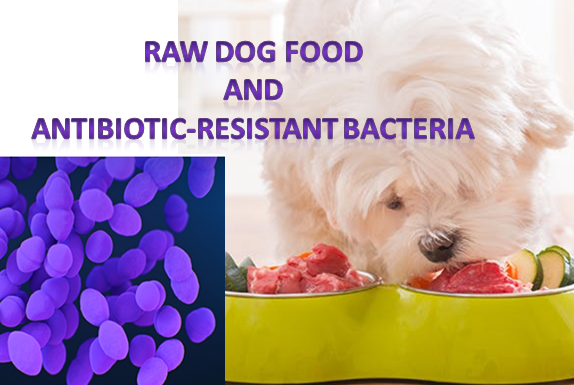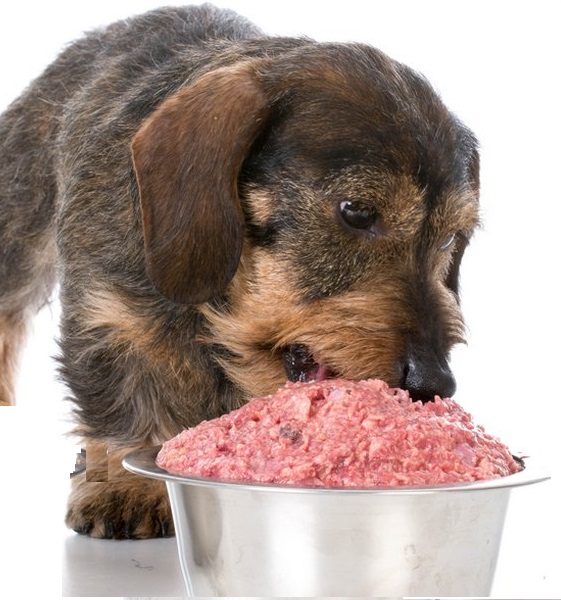New research: Dog food sold across Europe contains antibiotic-resistant bacteria
 A new research presented at the European Congress of Clinical Microbiology & Infectious Diseases (ECCMID) reveals that raw dog food is a significant source of antibiotic-resistant bacteria, making it an international public health risk.
A new research presented at the European Congress of Clinical Microbiology & Infectious Diseases (ECCMID) reveals that raw dog food is a significant source of antibiotic-resistant bacteria, making it an international public health risk.
The World Health Organization (WHO) classifies antibiotic resistance as one of the greatest public health threats facing humanity. According to WHO, drug-resistant infections kill an estimated 700,000 people/ year globally and, it is projected to rise to 10 million by 2050 if no action is taken.
The researchers say that the trend of feeding dogs with raw food may be fuelling the spread of antibiotic-resistant bacteria. Some of the multidrug-resistant bacteria in raw dog food were found to be identical to those found in hospital patients in several different European countries. Raw dog food presents an international public health risk due to antibiotic-resistant bacteria in a range of different types of raw dog food.
To investigate if pet food is a potential source of spread of antibiotic-resistant bacteria, the researchers (UCIBIO, Faculty of Pharmacy, the University of Porto, Portugal) evaluated dog food from supermarkets and pet shops for Enterococci. Enterococci live harmlessly in the guts of humans and animals but can cause severe infections if they spread to other parts of the body.

A total of 55 samples of dog food (22 wet dog food, 8 dry dog food, 4 semi-wet food, 7 treats, and 14 raw-frozen dog food) from 25 brands available nationally and internationally were included in the study. The raw-frozen foods included duck, salmon, turkey, chicken, lamb, goose, beef, and vegetables.
Thirty samples (54%) contained Enterococci. More than 40% of the Enterococci were resistant to the antibiotics erythromycin, tetracycline, quinupristin-dalfopristin (a combination of 30% quinupristin to 70% dalfopristin), streptomycin, gentamicin, chloramphenicol, ampicillin, or ciprofloxacin. There was also resistance to vancomycin and teicoplanin (2% each). Additionally, 23% of the enterococci were resistant to linezolid (a class of antibacterials called oxazolidinones). Linezolid is a last-resort antibiotic used on severe infections when other drugs have failed and are considered a critically important treatment by the WHO.
All of the raw dog food samples contained multidrug-resistant Enterococci, including bacteria resistant to linezolid. In contrast, only three of the non-raw samples contained multidrug-resistant bacteria.
Genetic sequencing showed that some of the multi-drug resistant bacteria in the raw dog food were identical to bacteria isolated from hospital patients in the UK, Germany, and the Netherlands.
In another experiment, the researchers transferred antibiotic resistance genes from the bacteria found in dog food to other experimental bacteria – suggesting this can also occur in nature.
The researchers conclude that dog food can be a source of bacteria resistant to last-resort antibiotics and could potentially spread to humans. Dog food, they add, could be an overlooked driver of antibiotic resistance globally.

In another study, which has not yet been published, a different team from Portugal tested pet owners and animals from 80 households for bacteria with the mcr-1 gene, which shows resistance to the last-resort antibiotic colistin. All 126 humans were healthy, while half of the 102 pets sampled had skin or urinary tract infections. Four humans and eight dogs tested positive for bacteria carrying mcr-1, and in two households, the gene was found in both the dog and its owner. Genetic analysis of the samples suggested that the gene had been transmitted between pet and owner in one of these two cases.
Dr. Freitas said: “The close contact of humans with dogs and the commercialization of the studied brands in different countries create an international public health risk. European authorities must raise awareness about the potential health risks when feeding raw diets to pets and the manufacture of dog food, including ingredient selection and hygiene practices, must be reviewed.”
The drug-resistant bacteria can live harmlessly in human and animal intestines but can be dangerous in other parts of the body and be resistant to antibiotics. Antibiotic-resistant microorganisms can make minor injuries and common infections potentially deadly. The studies raise the concern that pets could spread resistant bacteria to last-resort antibiotics.
In the US the FDA should initiate a study to investigate if the raw pet food sold in stores also contains drug-resistant microorganisms.
